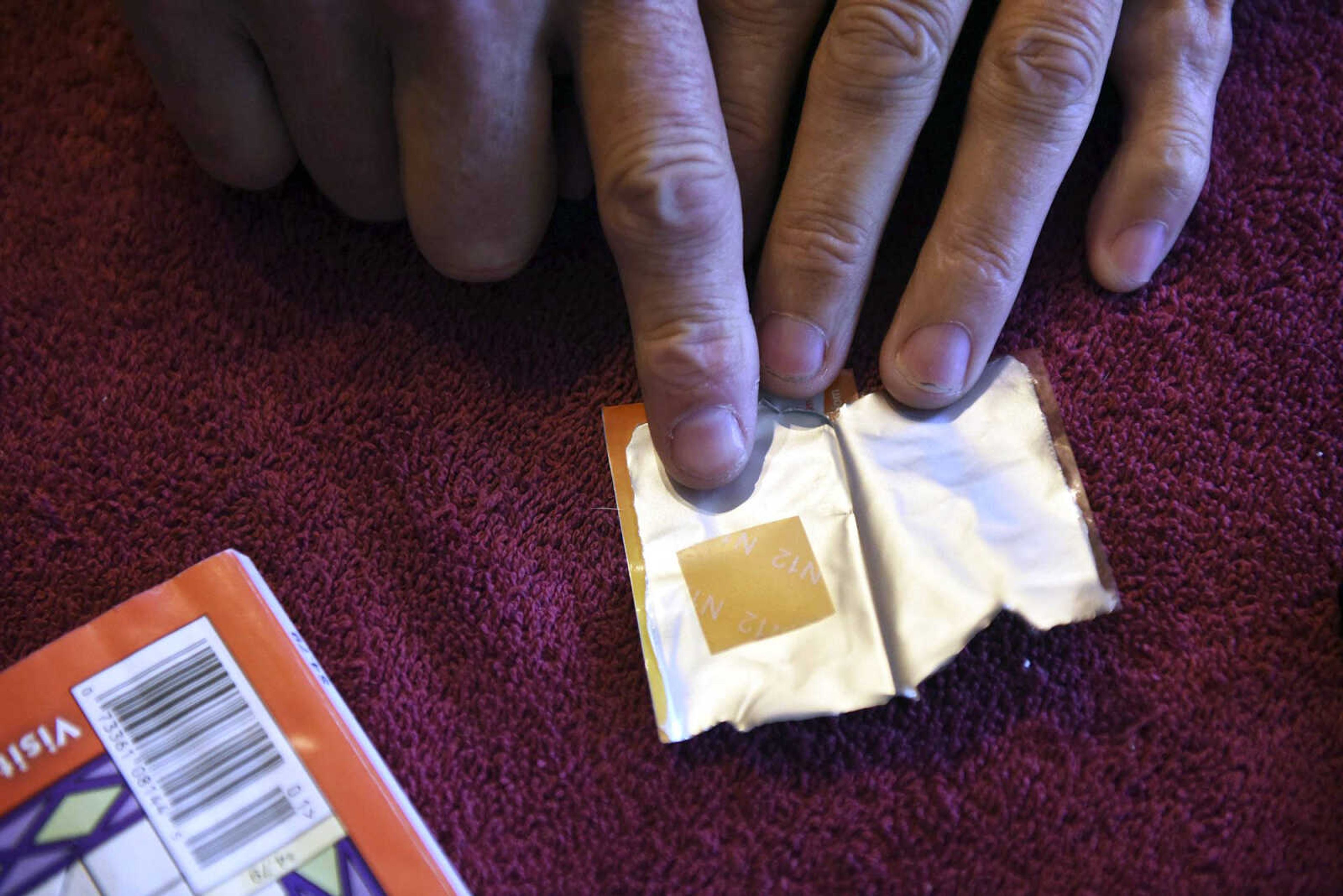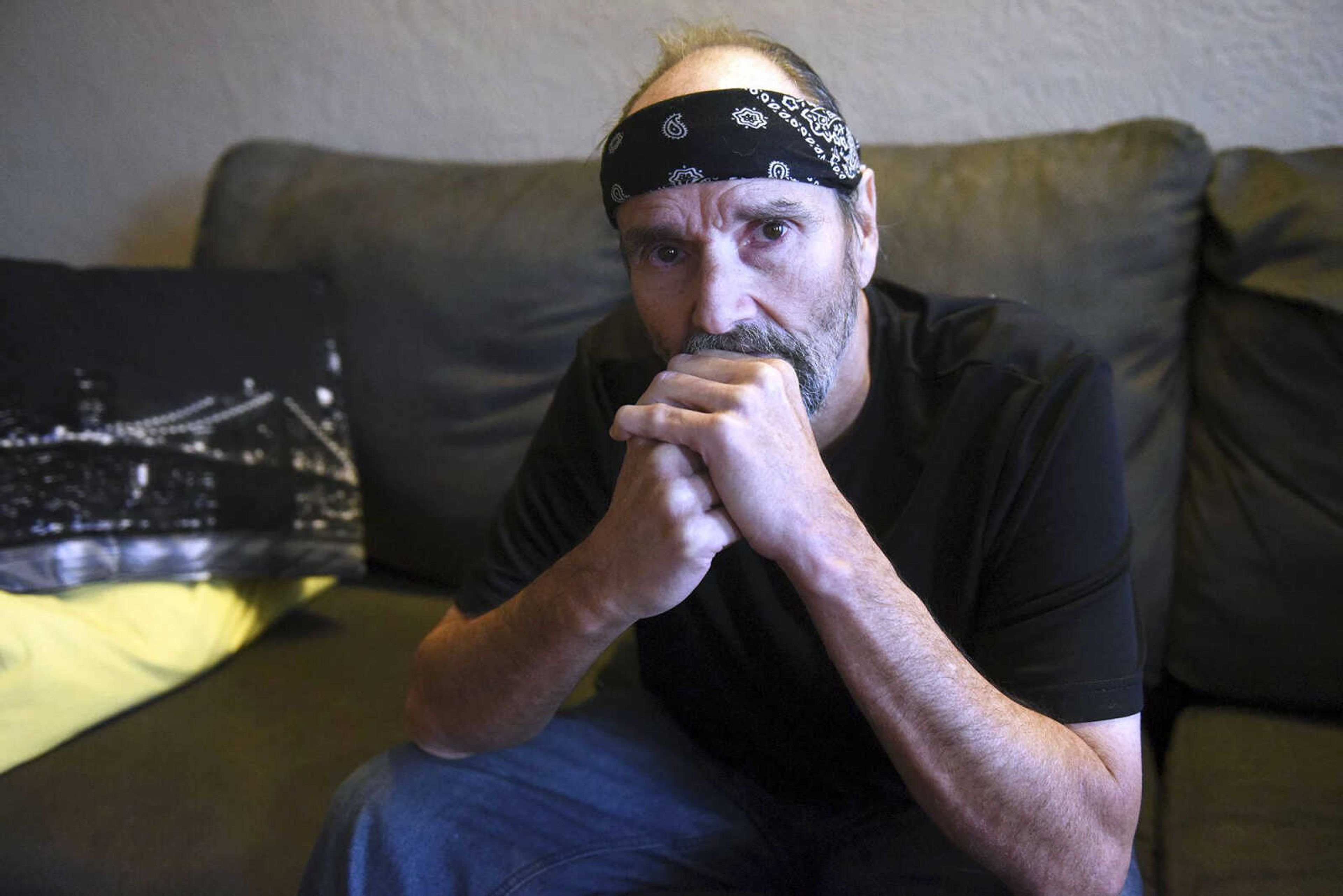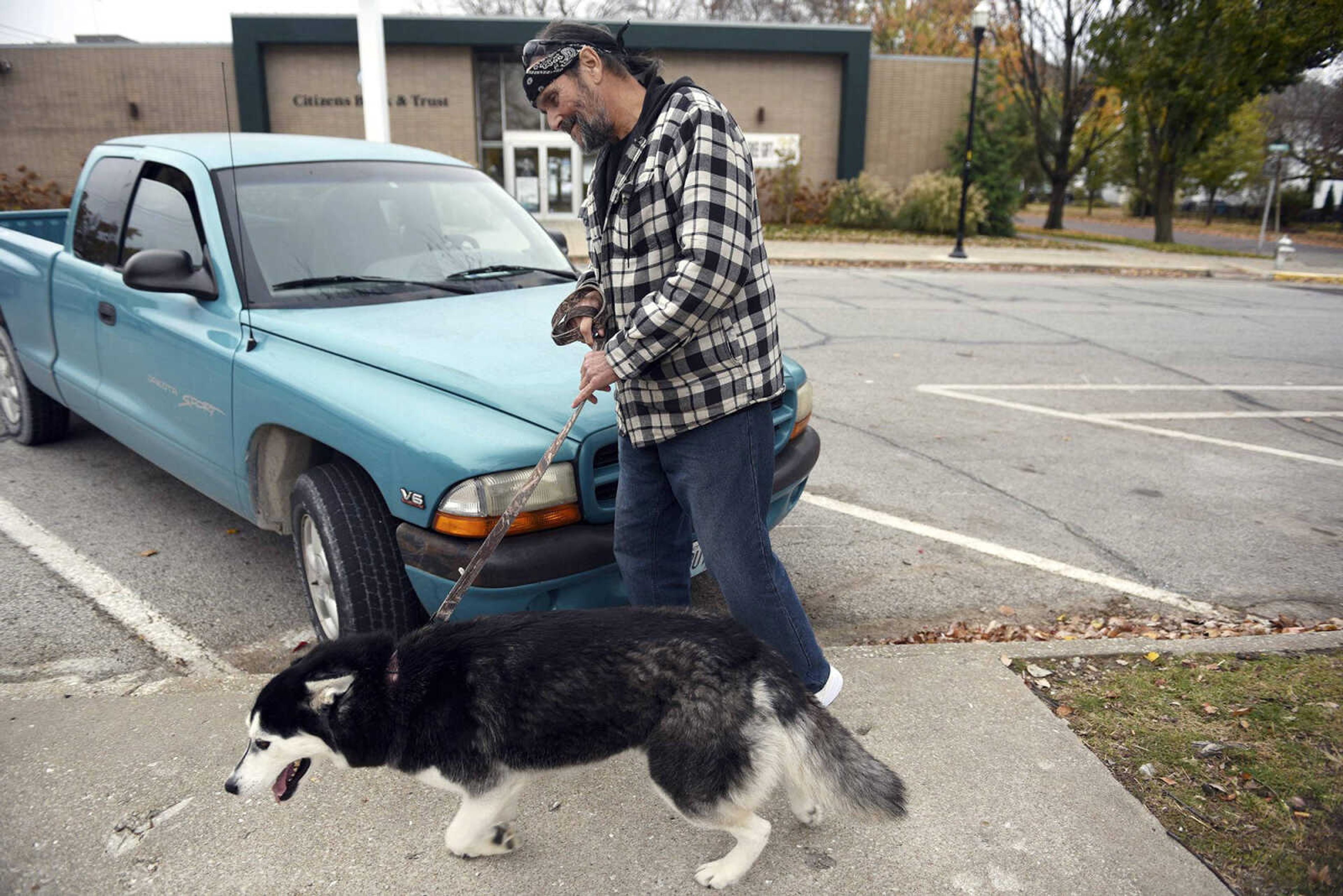Medication gives Boonville, Mo., man second chance from opioids
BOONVILLE, Mo. -- Denny Sercu ate Thanksgiving dinner with his family. What is hardly newsworthy for most people is a milestone event in his recovery from heroin addiction. It's been years since his last Thanksgiving with any of his four adult children. And for the 65-year-old former master plumber who counts the years of his addiction in decades, a normal relationship with his children is a welcome change...
BOONVILLE, Mo. -- Denny Sercu ate Thanksgiving dinner with his family.
What is hardly newsworthy for most people is a milestone event in his recovery from heroin addiction. It's been years since his last Thanksgiving with any of his four adult children. And for the 65-year-old former master plumber who counts the years of his addiction in decades, a normal relationship with his children is a welcome change.
"It took a while to get it back," he said. "They had heard I am going to do this, I am going to do that. They had been lied to so many times in the last 40 years that it takes a lot to get that trust back. They never turned their back on me, they've never given up on me, they've always been there for me, but it got to the point where they wouldn't give me no more money."
For the past two years, Sercu has used Suboxone, a medication with a synthetic opioid that chemically satisfies an addict combined with naloxone, the drug used to save the lives of overdose victims. It is one of the medications becoming more widely used as a first treatment step to combat the withdrawal that drives addicts to get another fix.
In that time, Sercu has gotten off the streets and into a modest apartment in downtown Boonville, which he shares with his husky, Aspen. The change is almost indescribable, said his eldest daughter, Missy Walker, who hosted him on Thanksgiving with other family members, including her sister and her mother, his first wife.

"Three, four years ago, I did not trust him at all," Walker said. "I was not willing to allow him to be around my children because I just didn't know when he was high and when he wasn't. Obviously, when the trust wasn't there, he couldn't be there."
For Sercu, life has been good and bad. He had professional baseball prospects. He almost never had trouble finding a job as a plumber. He also served a prison term in the 1980s for attempting to burglarize a pharmacy.
"I've been working since I was 10 years old," he said. "I had two jobs, I was supporting two girls, a wife, I had a car, two cars, a house. I always maintained and took care of that on the good side. I've been married four times. I've had my own business and lost it all. I have been to the point where I had zilch, nothing. I was eating out of dumpsters and (defecating) in the woods."
Sercu is also lucky to be alive. He's overdosed three times. With opioid addiction at epidemic levels -- bringing with it overdose deaths as inexperienced users move from pills to heroin and the powerful and dangerous fentanyl -- he's telling his story as a warning addiction can strike anywhere and should be treated as disease rather than a crime.
He was on a panel Nov. 6 when Moberly Area Community College hosted an Opioid Crisis Management Training Conference put on by Missouri's State Targeted Response project. The training session focused on training addiction-care providers with the latest approaches, including medication.

There is a new emphasis on controlling withdrawal quickly with medication when people seek treatment, said Laura Cameron of Phoenix Health Programs, Sercu's treatment counselor. New protocols are being developed that make it a priority, she said.
"Instead of having to do the intake, they are realizing these people are in trouble," she said.
Sercu realizes Suboxone is a maintenance drug he probably will take for the rest of his life. But that doesn't bother him when he compares it to life on heroin. One measure of its effectiveness is how long it keeps away the pain of withdrawal.
"I have gone 9 days without my Suboxone and not gone into withdrawal," he said. "It's got legs."
In Missouri this year, deaths from opioid overdoses, as counted by the Department of Health and Senior Services, will exceed traffic fatalities, counted by the Missouri State Highway Patrol. Through Aug. 31, opioid overdoses were blamed for 733 deaths, with 591 from traffic accidents.
The official figures don't include the other ways addicts die. From liver cancer, caused by hepatitis C that comes from sharing needles. Or from exposure, when they are homeless and hopeless.
"I've lost so many friends in the last 10 years," Sercu said. "They found one of my best buddies down here on Water Street covered with snow, he had been dead so long."
It was New Year's Day in 2013 when Ronnie Huffman died, three days before his 62nd birthday. The low that morning was about 17 degrees.
"It was right down by the Katy Bridge, where the city has just done the remodeling," police chief Bobby Welliver said. "There was a little clearing up there that had an old abandoned house."
The autopsy report, Welliver said, listed cardiac arrest, hypothermia and chronic alcoholism, in that order, as the reasons Huffman died.
"I knew Ronnie well," Welliver said. "His sister worked for us. He had a long history of drug abuse and stuff."
Huffman struggled with addiction for decades before his death, Sercu said.
"He went to sleep and died because he didn't have no place to live because his family turned their back on him because he was stealing and robbing from them and didn't have a place to live because of his addiction," Sercu said. "I have lost probably 35 to 40 people in the last 10 years, my friends, to liver cancer and as a result of drugs."
Withdrawal for an opioid addict causes cramping, sweating, chills and intense anxiety to get more. With drugs, many addicts can function normally without drawing notice. Without them, withdrawal begins.
"Dope sick is the worst," Sercu said. "I've been shot, I've been cut, felt the pain of 19 broken bones, but going through withdrawal is a pain I would not wish on my worst enemy."
Withdrawal is also the most dangerous time, when caution is forgotten, Sercu said. It is why he once woke up in a bathtub, surrounded by his friends, with the needle still in his arm.
He would not have overdosed if he had not been so anxious, he said.
"Any time before that, it was like jumping into muddy water," he said. "You don't go in until you find out how deep it is. I always tried a little bit at first."
Withdrawal also is the reason he went to prison. He was out of money, his dealer had been arrested and he was out of options when he tried to break into Long's Pharmacy while his wife waited outside in the car, he said.
"I really didn't know anybody else to go to and I just decided I would do whatever I had to do to get what I needed," Sercu said.
Welliver wasn't an officer yet when Sercu was arrested for the break-in, but he remembers it. His father owned a restaurant and Sercu and his friends were regular customers. It is hard to keep secrets in a small town.
"We all knew they were on drugs," he said.
As a girl, Walker said, her parents were able to shelter her from some parts of the story. They divorced when she was 6 years old. She was in sixth grade when her father was in prison.
"I didn't know he had robbed a pharmacy to get drugs," she said. "That's the part I didn't know until later."
Walker said she became aware of her father's drug use as she neared high-school graduation.
"We had a pretty big falling out when I was about 19, and that had a really devastating effect on my life," she said.
As an adult, Walker said, she's spent weeks worrying about her father when he was homeless and out of touch. He could have had the same fate as Huffman, she said.
"As the child of an addict, you have to always live with the possibility that you are going to get a phone call that you don't want to get," she said.
After decades of maintaining, Sercu went into a downward spiral about eight years ago. He was divorced for the last time in 2011. He became homeless in Columbia.
"After that, I finally bowed my neck and realized I needed help," Sercu said. "I couldn't do this all on my own. I checked myself into Phoenix House for 28 days."
Without a fixed address, he couldn't hold a job. He slept in church shelters. Five years ago, his claim for disability was approved and he received a payout of $14,000.
"Well, you don't give a junkie $14,000," he said. "That $14,000 lasted me a total of eight months. It all went to heroin."
He went through treatment at Phoenix programs 10 times, Sercu said. Cameron has been with him to help every time. She was his case manager at first and is now his treatment counselor.
"She's seen me on my good side, she's seen me on my bad side, she's seen me at my worst when I couldn't walk, couldn't get out of bed," he said.
The change since Sercu was given Suboxone is a transformation she hopes for every patient, Cameron said. He always had a cheery personality and his honesty about his addiction is helping others.
"He is looking at becoming a peer support specialist and get involved in the project and help people find their way back from the addiction," she said.
The people who know him in his hometown are happy for Sercu because of the change he has made, Welliver said. Even in the worst throes of his addiction, he was well-liked, he said.
"I never knew him to be a mean person," Welliver said. "He did his drugs, he didn't try to hurt people. I don't think he did his acts of crime out of anything other than to get his drugs."
Walker said he never spoke ill of her mother after their divorce and corrected her and her sister if they complained about their mother. Both were at the Thanksgiving dinner, she said.
"I never quit loving him and never stopped praying for him and never stopped hoping," she said.
What he wants, Sercu said, is to be a warning to anyone who is following the same road.
"If telling this story reaches one person, say a teenager in school or something, if it just turns them around, to where they really don't want to experience this crap and it saves their life, then it's worth it," he said. "Every bit of it is worth it."
Information from: Columbia Daily Tribune, http://www.columbiatribune.com
Connect with the Southeast Missourian Newsroom:
For corrections to this story or other insights for the editor, click here. To submit a letter to the editor, click here. To learn about the Southeast Missourian’s AI Policy, click here.











